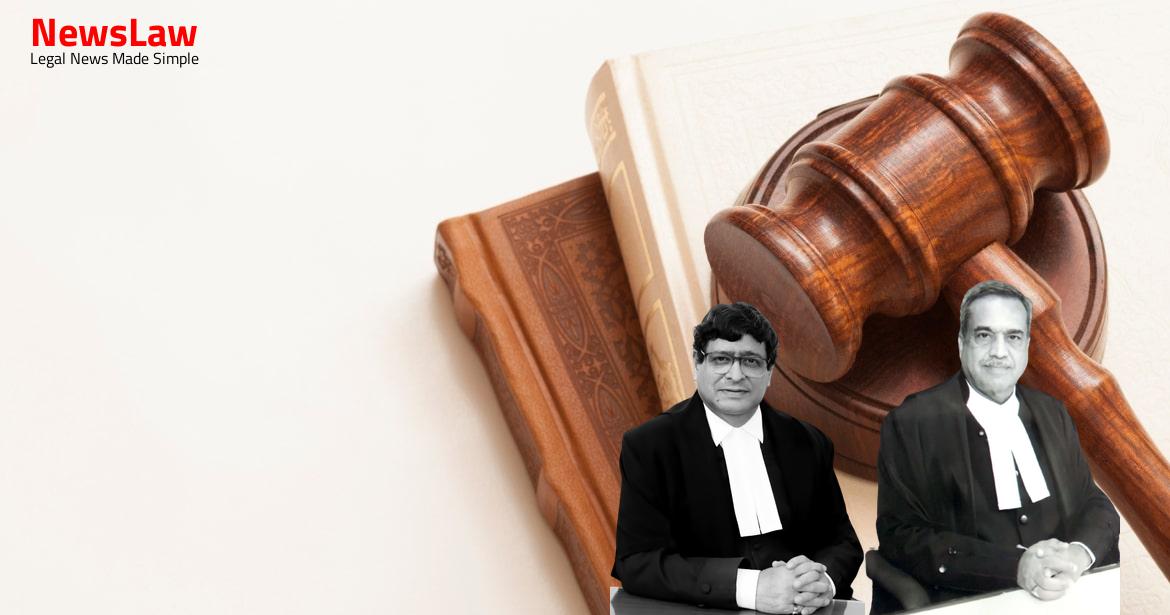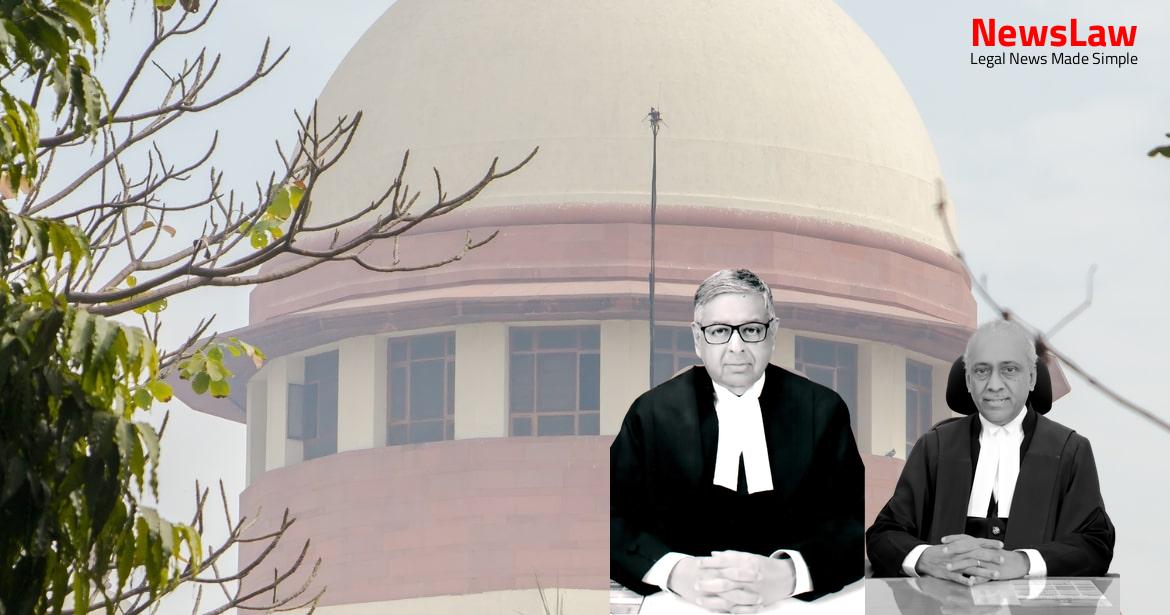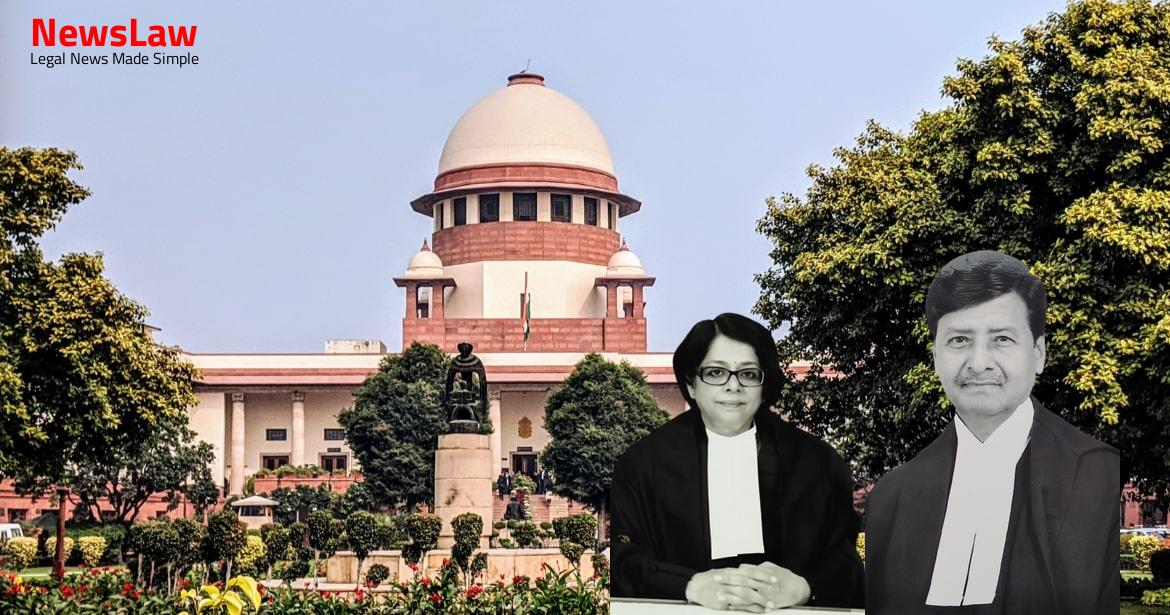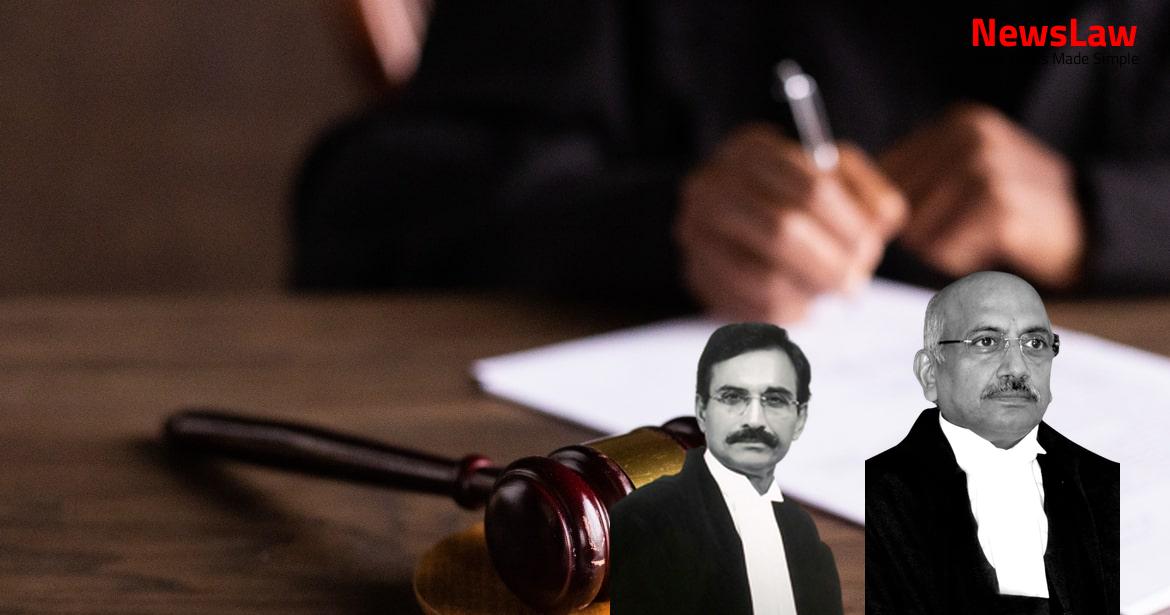In a recent legal case, the court delves into the limitations of writ jurisdiction in fiscal matters, emphasizing the significance of statutory remedies provided under the law. The court’s thorough legal analysis highlights the necessity of following established procedures and refraining from bypassing statutory avenues. Stay tuned to understand the complexities of seeking remedies in fiscal cases and the judicial prudence associated with such matters.
Facts
- State objected to entertaining the writ petition against the Assessment Order due to the availability of the statutory appeal under Section 46(1) of the MP VAT Act, 2002.
- High Court entertained the writ petition as there were no disputed questions of facts involved.
- The High Court quashed and set aside the Assessment Order denying Input rebate passed by the Divisional Deputy Commissioner, Commercial Tax, Jabalpur.
- The State of Madhya Pradesh has filed an appeal against the High Court’s decision.
Also Read: Legal Analysis of Admission Irregularities in Educational Institutions
Issue
- The issue to be decided is based on admitted facts and requires no further factual inquiry.
- The decision will be made solely on legal arguments and interpretations of the law.
- The parties are in agreement regarding the facts in question, and the court’s task is to apply the law to these facts.
- There is no dispute on the relevant matters, and the focus will be on the application of existing legal principles.
Also Read: Quashing of Enhanced Tuition Fee in Private Medical Colleges
Arguments
- High Court should not have entertained the writ petition under Article 226 against the Assessment Order
- Statutory appeal available under Section 46(1) of the MP VAT Act, 2002 should have been pursued
- Denial of Input rebate should have been challenged through the statutory appeal process
Also Read: Final Decision and Disclosure in Collegium Meetings
Analysis
- High Court observed no disputed questions of facts and decision to be made on admitted facts.
- Majority of petitions under Article 226 filed for obtaining interim orders and prolonging proceedings.
- Hierarchy of appeal provided in the Act, discouraging recourse to Articles 226 and 227 or civil suits.
- Recent decision in The State of Maharashtra v. Greatship (India) Limited emphasized on alternative remedy provision in the Act.
- Court proposes to dismiss writ petition and advise statutory appeal against Assessment Order.
- Court not considering merits of High Court’s decision on Input rebate denial.
- Court can look beyond State’s pleadings in extraordinary jurisdiction under Article 226.
- Various submissions made on merit, including challenges to Assessment Order on Input rebate denial.
- High Court set aside Assessment Order denying Input rebate and allowed it in favor of the assessee.
- Although Act does not expressly oust jurisdiction under Articles 226 and 227, judicial prudence suggests refraining when alternative remedy exists.
- Act provides special procedure for debt recovery by banks and financial institutions.
- Article 226 of the Constitution is not meant to short-circuit or circumvent statutory procedures.
- Recourse to Article 226 is allowed in extraordinary situations where statutory remedies are ill-suited or where the vires of the statute is in question.
- Before granting relief under Article 226, the Court must consider various factors such as complexity of facts, availability of alternative remedies, delays, limitations, and public policy implications.
- The State or its instrumentalities may be directed to file proper affidavits with all relevant facts when public revenue or interest is involved.
- Bypassing statutory remedies for fiscal matters in favor of writ jurisdiction should be strongly discouraged.
- High Courts should not entertain petitions under Article 226 when statutory remedies are available for matters involving revenue.
- The High Court, in exercising jurisdiction under Article 226, must consider all relevant facts even without proper affidavits from the State before deciding to interfere.
- The parameters for exercising jurisdiction under Article 226 must be strictly followed by the High Courts.
- The High Court is not the appropriate appellate forum for cases related to Assessment Orders.
- The writ petition under Article 226 of the Constitution of India against the Assessment Order denying Input rebate is not sustainable.
- The original writ petitioner should file an appeal against the Assessment Order under Section 46(1) of the MP VAT Act, 2002.
- The impugned judgment and order passed by the High Court is quashed and set aside, without expressing any opinion on the merits of the Input rebate claimed by the respondent.
Decision
- The writ petition preferred by the respondent is dismissed due to the availability of an alternative statutory remedy of appeal.
- No costs are to be awarded in this case.
- The appeal is allowed only to the extent mentioned.
- The respondent is directed to file an appeal before the appellate authority under Section 46(1) of the MP VAT Act, 2002 within four weeks.
- The appeal should be decided on merits without considering the issue of limitation if filed within the specified time frame.
- The appellate authority should not be influenced by any observations made by the High Court in the judgment.
Case Title: THE STATE OF MADHYA PRADESH Vs. M/S COMMERCIAL ENGINEERS AND BODY BUILDING COMPANY LTD. (2022 INSC 1088)
Case Number: C.A. No.-007170-007170 / 2022



